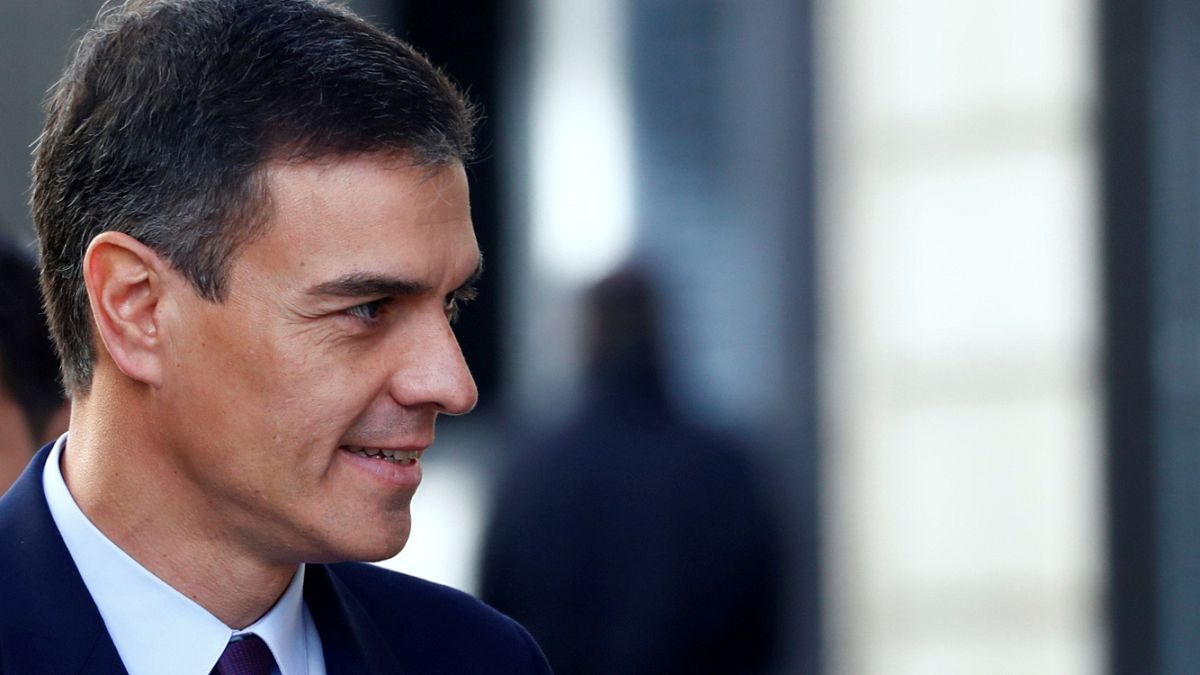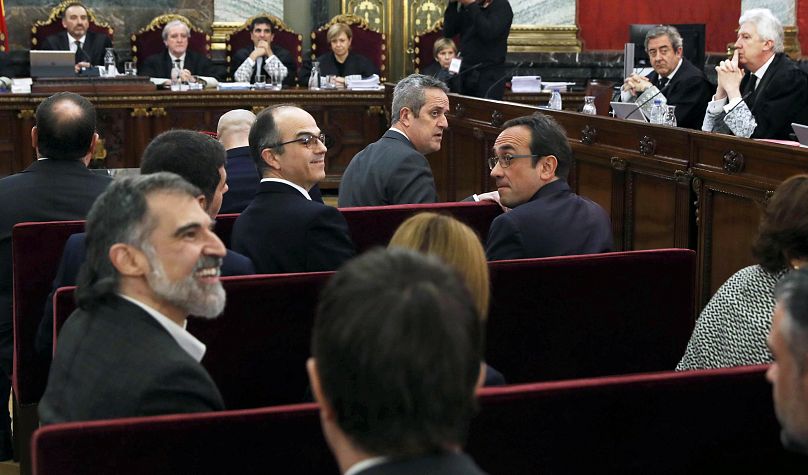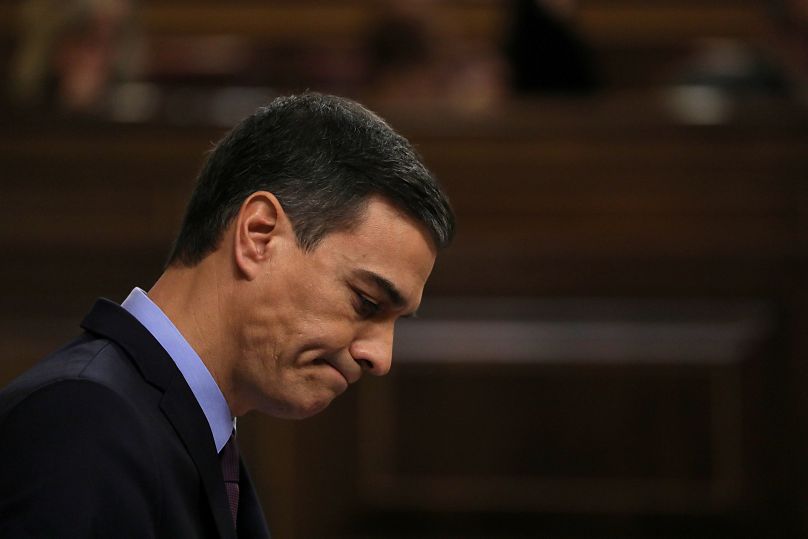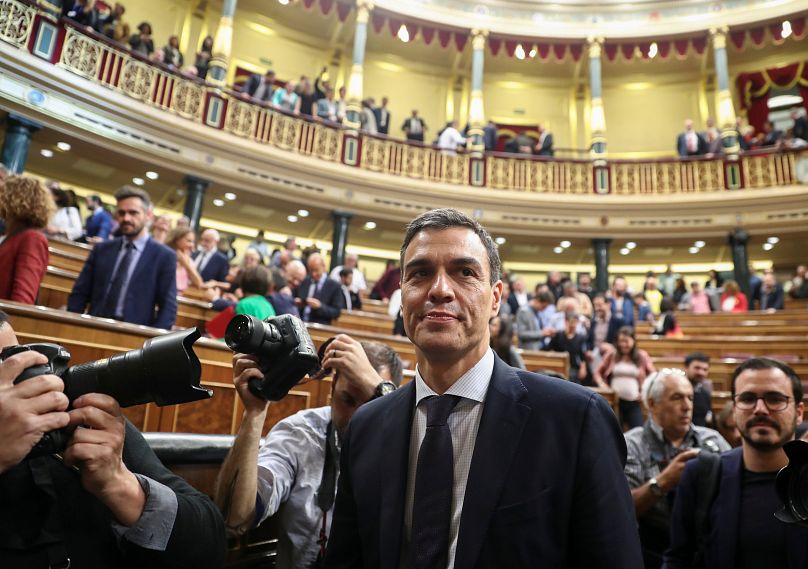Spain's Prime Minister Pedro Sanchez is trying to get a budget approved on Wednesday but with no support from Catalan nationalist parties and calls by the conservative parties to call a general election, he is running out of options.
Spain could face a snap election if Prime Minister Pedro Sanchez does not get his budget plans approved by parliament in a preliminary budget vote on Wednesday.
The socialist leader is reliant on the support of two Catalan pro-independence parties to get the budget approved but it appears unlikely as the trial of 12 Catalan separatist leaders began on Tuesday.
Citing government and socialist party sources, Reuters reported the socialist government plans to announce an early general election after its expected defeat in the budget vote.
The sources said no date had been set for a snap-election, but that April 14 was most likely, followed by April 28. The same was reported by Spanish news agency EFE.
Catalan nationalist parties said last Friday they would block Sanchez's budget unless he was more accommodating toward Catalonia than the last conservative government. They also cited demands for a referendum on Independence.
Sanchez's socialist party holds less than a quarter of seats in the lower parliamentary house and relies on 17 pro-independence Catalan MPs. With the Catalan parties withdrawing their support for the budget, it is unlikely Sanchez will have enough support to pass the bill, which could see a snap election this year.
Sanchez is also under pressure from the conservative and right-wing parties, the Partido Popular, Vox, and Ciudadanos, who called on tens of thousands of people to protest against the premier's attempts to create a dialogue with the Catalan national parties and urged a snap election.
The Prime Minister wrote in a Tweet that the right-wing and Catalan parties opposing the bill meant "They both want the same: A divided Catalonia and a divided Spain”.
How is the Catalan trial impacting politics and the budget?
Sanchez is paying a heavy price for small concessions made to the Catalans. The leader of the main opposition Popular Party, Pablo Casado, recently accused the Prime Minister of being a "traitor".
Spain's political parties are "absolutely playing politics" to win over voters with the Catalan crisis, Antonio Barroso, an analyst at Teneo Intelligence, told Euronews.
"Catalonia is a very prominent issue with centrist voters and certainly with right-wing voters. There is a competition within the three conservative and right-wing parties to show they are against any negotiation with the Catalans," said Barroso.
But Catalan's independence parties can also be accused of playing politics. According to Barroso, seeing the leaders in front of the judges "elevates the cause of those who see too much support for the central government".
Regardless of the outcome of the trial, the Catalan issue "will continue to dominate the headlines and polarization will continue to feature in the Spanish political landscape," added the analyst.
How much pressure is Sanchez under?
Sanchez was elected on a promise to get a budget approved in parliament this year, following a no-confidence vote in June against the Popular Party.
Getting the budget approved is not necessarily needed to go into an election but it does make it harder for the Prime Minister to govern due to pressure from opposing parties.
If Sanchez receives enough support for the budget he would get a bigger majority in parliament to pass other legislation and would go more comfortably into the next general election.
But if the budget is not approved, it will be more difficult for him to stay in office until 2020, when Spain is due to hold an election.
"Chances of a snap election will increase significantly if the budget isn't approved," said Barroso.
What is Sanchez planning in the budget?
The budget was negotiated with the leftist Podemos party and with centre-left policies to win over moderate voters in the next election.
Sanchez is also seeking more investment in the regions, including Catalonia.
Spain has mostly recovered from the 2008 financial crisis and the economy is still holding up despite Europe's slowdown. However, unemployment, particularly among the youth, remains exceedingly high and public debt over the GDP is also still quite high too.
Could a snap-election in Spain reshape Europe's political landscape?
Uncertainty and a battle between the moderate and populist parties are ensuing across Europe, with French President Emmanuel Macron coming into blows with Italy's populist parties while facing anti-government demonstrations back home, and Germany's leader Angela Merkel seeing her powers dwindle.
However, a snap-election would have a "relatively limited" impact on Europe's political landscape, said Barroso. Even if Spain's new right-wing Vox party wins seats in Madrid's parliament, the centrist parties "will continue to dominate," he added.
"Even if you have a centre-right parliament, it won't be anything like Italy" since Spain has a strong consensus of the EU, he said.



